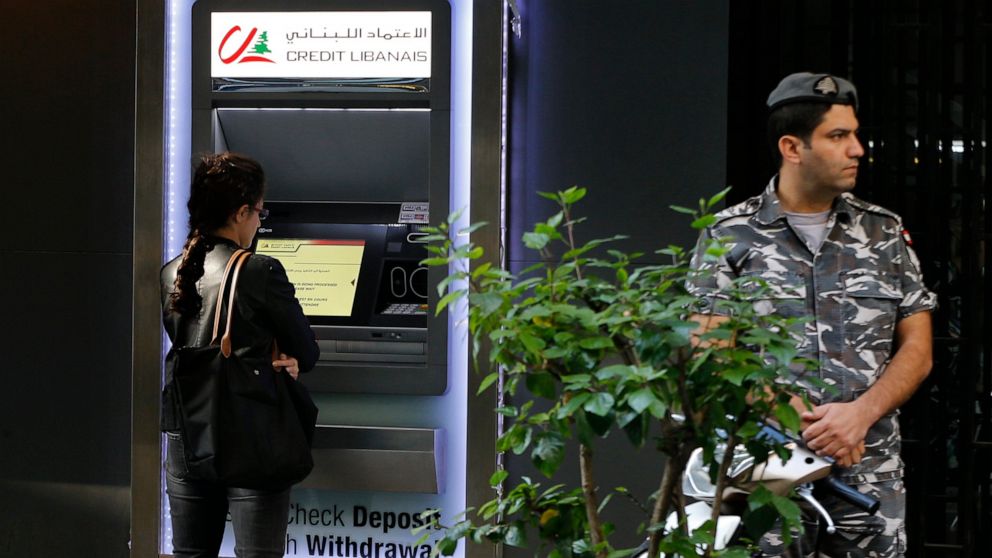Lebanon’s central bank lowers interest rates on dollar, Lebanese pound deposits and loans
By
SARAH EL DEEB Associated Press
December 4, 2019, 4:28 PM
3 min read
Lebanon’s central bank on Wednesday dramatically lowered interest rates on dollar and Lebanese pound deposits and loans — the latest measure to shore up the country’s banking system amid a burgeoning economic crisis.
Banque de Liban also announced that for the next six months it would pay 50% of the interest it owes banks on dollar deposits and deposit certificates in Lebanese pounds— a move that would also ease the demand on the dollar.
The decisions come as Lebanon, the world’s third most indebted country in terms of debt-to-GDP ratio, faces an unprecedented economic and political crisis amid nearly 50 days of nationwide protests.
President Michel Aoun set Monday for a one-day binding consultation with parliamentary groups to name a new prime minister on Wednesday, more than a month after the government resigned.
But protesters have already mobilized against the name floated as a potential successor for resigned Prime Minister Saad Hariri. Hundreds of protesters blocked in towns in the Bekaa valley in the east, objecting to Samir Khatib, a prominent contractor who they say is close to the political elite they have been protesting against since Oct. 17.
Lebanon’s armed forces said it arrested 16 protesters following scuffles to break up road blocks. Early on Wednesday, security forces used tear gas to disperse hundreds who blocked a main intersection in Beirut for hours.
The notice from Lebanon’s central bank said it has put a ceiling on interest rates, slashing them on dollar deposits and loans to 5% from as high as 14%.
The central bank’s decision applies to new deposits and ones renewed after Wednesday. Interest rates on Lebanese pound-denominated deposits would be set at 8.5%.
The decision alleviates the pressure on the banks after depositors rushed to withdraw their money and rising risk of defaulting loans amid a liquidity crunch.
Lebanese officials estimate that as much as $4 billion have been withdrawn from banks over the past weeks as the local currency loses nearly 40% of its value. The money remains in the country but reflects the deepening confidence crisis banks are facing.
Banks had closed for nearly two weeks at the start of protests in mid-October and there was a run on the banks when they reopened. Local banks then imposed capital control measures unseen before in the country known for its free-market economy, such as limiting withdrawals and transfers of money abroad.
The central bank’s decisions buy time until a new government is formed. International donors had pledged $11 billion to Lebanon’s troubled economy in 2018, long before the protests began. But the donors had called for major economic changes to release the loans and grants.
Hariri resigned Oct. 29 amid nationwide protests, saying he reached a “dead end” with his political rivals over an emergency government. The protesters have been calling for a technocrat government, accusing the current political elite of widespread corruption and mismanagement of the country’s economy. Hariri has expressed support for Khatib as a potential successor.
According to Lebanon’s sectarian-based political system, the prime minister comes from the Sunni Muslim community, while the president is chosen from the Maronite Christian community. The parliament speaker is chosen from the ranks of Shiite Muslims. Cabinet and parliament seats are equally split between Christians and Muslims.
